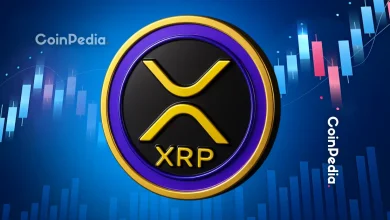
SBI proposes Japan’s first XRP and crypto-gold hybrid ETFs to boost institutional adoption
The firm partners with Ripple and Circle to expand RLUSD and USDC stablecoin use in Japan
SBI pushes for crypto tax reform and regulatory changes for increased adoption
Japanese financial giant SBI Holdings is making big strides in crypto, launching initiatives that may shape the future of digital assets in the country.
Here’s an easy breakdown of what SBI is doing and why it matters.
SBI Proposes Two XRP-Linked ETFs
As part of its Q2 2025 financial strategy, SBI has proposed two exchange-traded fund (ETF) models: one combines gold, over 51 percent, with crypto, and the other focuses entirely on cryptocurrencies like Bitcoin and XRP. If approved, they would be the first regulated ETFs in Japan to include XRP, boosting institutional adoption of Ripple’s tech.
Gold-Crypto ETF Offers Balanced Exposure
The Digital Gold Crypto ETF combines the stability of gold with the upside potential of XRP and Bitcoin. This offers a balanced option for both crypto enthusiasts and conservative investors, and also expands SBI’s reach across investor profiles.
SBI’s move signals strong confidence in XRP’s long-term utility, especially in cross-border payments. As a key Ripple partner, SBI continues to champion XRP across Asia.
SBI Expands Stablecoin Push with RLUSD and USDC Plans
SBI is also expanding into stablecoins in a major way.
It plans to support Ripple’s USD-backed stablecoin RLUSD within this fiscal year. Alongside that, SBI has partnered with Circle to support the adoption of USDC in Japan.
The company wants to distribute USD-backed stablecoins for domestic use and sees them as beneficial for both Japan and the United States. To make this happen, SBI is in discussions with regulators about easing key restrictions, such as the current ¥1 million transfer limit, which it believes is holding back broader business adoption.
Is a Yen-Backed Stablecoin Coming Soon?
SBI is also exploring a yen-backed stablecoin. It plans to work with licensed banks and trust companies for its issuance. The company believes that stronger adoption of a JPY-backed stablecoin could increase demand for Japanese government bonds, help stabilize the yen, and enhance its global position.
Crypto Tax Reform in Japan
Over 100 financial institutions in 55 countries now use Ripple Payments for cross-border transfers.
SBI is urging Japan to treat crypto as an investment asset, not just a payment tool, and apply separate, lower tax rates instead of the current 55.95% progressive tax.
With rising political support, especially post-election, tax reform is gaining traction. SBI also calls for lifting transfer limits on overseas stablecoins to boost business use.
Japan’s Crypto Regulations Set to Evolve
Japan’s Financial Services Agency (FSA) is reviewing its crypto regulations, clearing the way for new products like ETFs and broader adoption of stablecoins.
Japan’s FSA has proposed to reclassify crypto as financial products, enabling crypto ETFs and cutting the tax rate on gains from 55% to 20%. The move aims to attract more investors.
As regulations ease and institutional interest grows, SBI’s crypto strategy could help Japan become a leading player in digital finance.
Never Miss a Beat in the Crypto World!
Stay ahead with breaking news, expert analysis, and real-time updates on the latest trends in Bitcoin, altcoins, DeFi, NFTs, and more.
FAQs
SBI plans Japan’s first regulated crypto ETFs – one combining gold/XRP/BTC (51%+ gold) and another focused purely on cryptocurrencies like XRP.
SBI is expanding into stablecoins by planning to handle Ripple’s RLUSD and partnering with Circle to support USDC in Japan. It’s also exploring a yen-backed stablecoin.
Japan’s Financial Services Agency (FSA) is reviewing its crypto regulations, proposing to reclassify crypto as a financial product, which could pave the way for ETFs and lower taxes.
Trust with CoinPedia:
CoinPedia has been delivering accurate and timely cryptocurrency and blockchain updates since 2017. All content is created by our expert panel of analysts and journalists, following strict Editorial Guidelines based on E-E-A-T (Experience, Expertise, Authoritativeness, Trustworthiness). Every article is fact-checked against reputable sources to ensure accuracy, transparency, and reliability. Our review policy guarantees unbiased evaluations when recommending exchanges, platforms, or tools. We strive to provide timely updates about everything crypto & blockchain, right from startups to industry majors.
Investment Disclaimer:
All opinions and insights shared represent the author's own views on current market conditions. Please do your own research before making investment decisions. Neither the writer nor the publication assumes responsibility for your financial choices.
Sponsored and Advertisements:
Sponsored content and affiliate links may appear on our site. Advertisements are marked clearly, and our editorial content remains entirely independent from our ad partners.








